Dining out is one of life’s great pleasures, but some people manage to turn a relaxing meal into a cringe-worthy experience. Whether it’s loud behavior, rude comments, or oblivious entitlement, certain habits instantly label someone as “that person”—you know, the one everyone hopes doesn’t get seated nearby. These behaviors don’t just annoy servers; they can ruin the vibe for the entire restaurant. If you recognize yourself in any of these habits, don’t worry—it’s never too late to turn over a new napkin. Here are 25 restaurant faux pas that make people roll their eyes and quietly judge from across the table.
Snapping at the Server
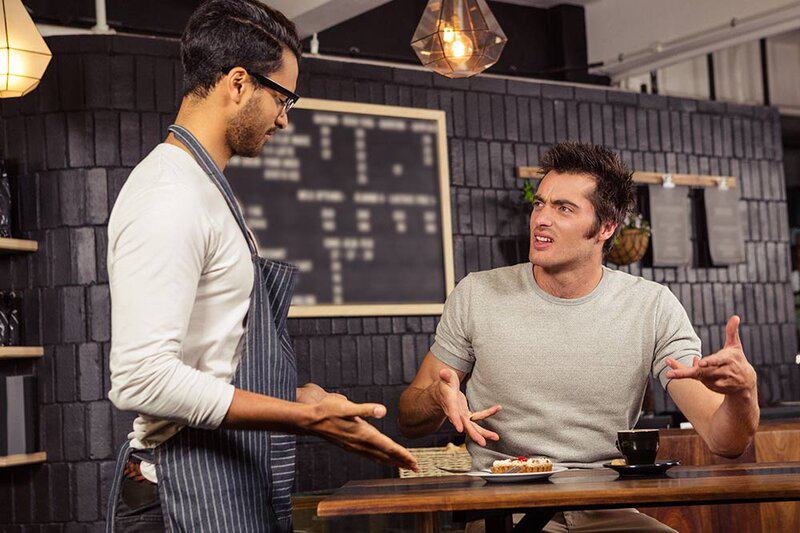
Nothing says disrespect like treating your server as if they’re on-call 24/7. Snapping your fingers or clapping to get their attention is demeaning and instantly signals entitlement. Most restaurant staff are juggling multiple tables and doing their best. A simple wave or polite “excuse me” goes much further. This behavior doesn’t make things go faster—it just makes you that customer. Not only does it kill the mood, but it may affect the quality of your service. Servers talk, and no one wants to serve someone who treats them like a servant.
Sending Back Food You Clearly Ordered
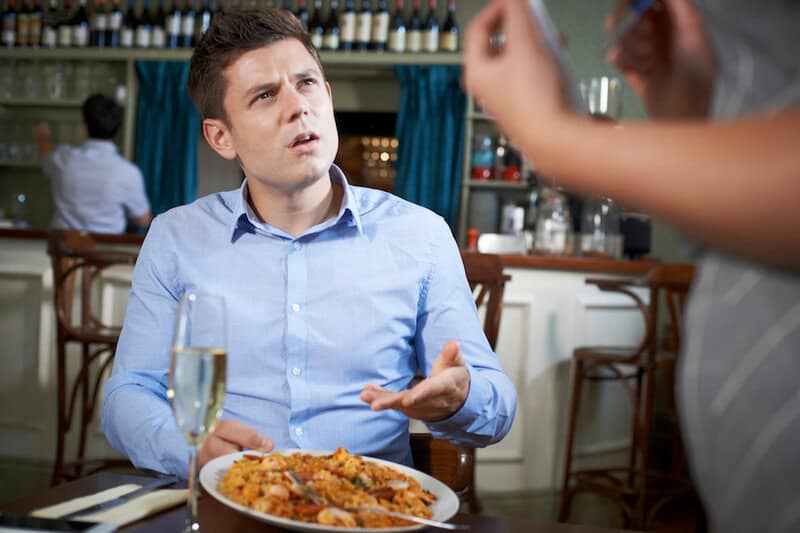
Ordering something with full confidence and then rejecting it because you “didn’t know it would taste like that” is a classic red flag. There’s a difference between a genuine mistake and regret over an adventurous choice. If you ordered the tuna tartare and expected chicken nuggets, that’s on you. This habit puts the kitchen and server in an awkward position. It wastes food, time, and goodwill. Being honest about preferences is okay, but taking responsibility for your choices is better. Otherwise, you’re just seen as difficult and indecisive.
Making Substitutions for Every Item
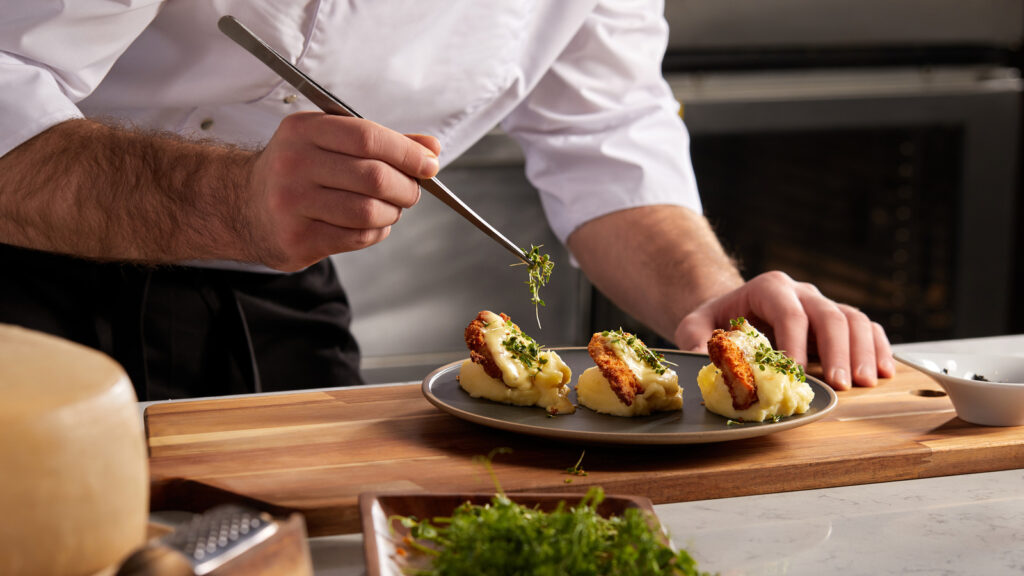
Modifying a dish slightly is common, but rewriting the menu is exhausting for everyone involved. When you replace half the ingredients and swap sauces three times, it becomes a logistical nightmare. It slows down the kitchen and increases the chance of errors. Chefs craft menus for balance and taste, not for someone to Frankenstein a salad into a burrito. Doing this regularly signals a control freak who doesn’t trust professionals. It also suggests you’re not actually interested in what the restaurant offers. Maybe try cooking at home if you want that much control.
Talking on Speakerphone

Restaurants are for dining, not for broadcasting your personal drama. Taking a call is one thing, but turning on speaker or FaceTime takes it to a whole new level of obnoxious. It disrupts nearby diners who didn’t sign up for a front-row seat to your conversation. It’s inconsiderate to the ambiance the restaurant is trying to create. Plus, it usually ends in raised voices and awkward glances. If a call is urgent, step outside. Otherwise, you’re just announcing that your world is more important than everyone else’s.
Leaving a Disaster Zone
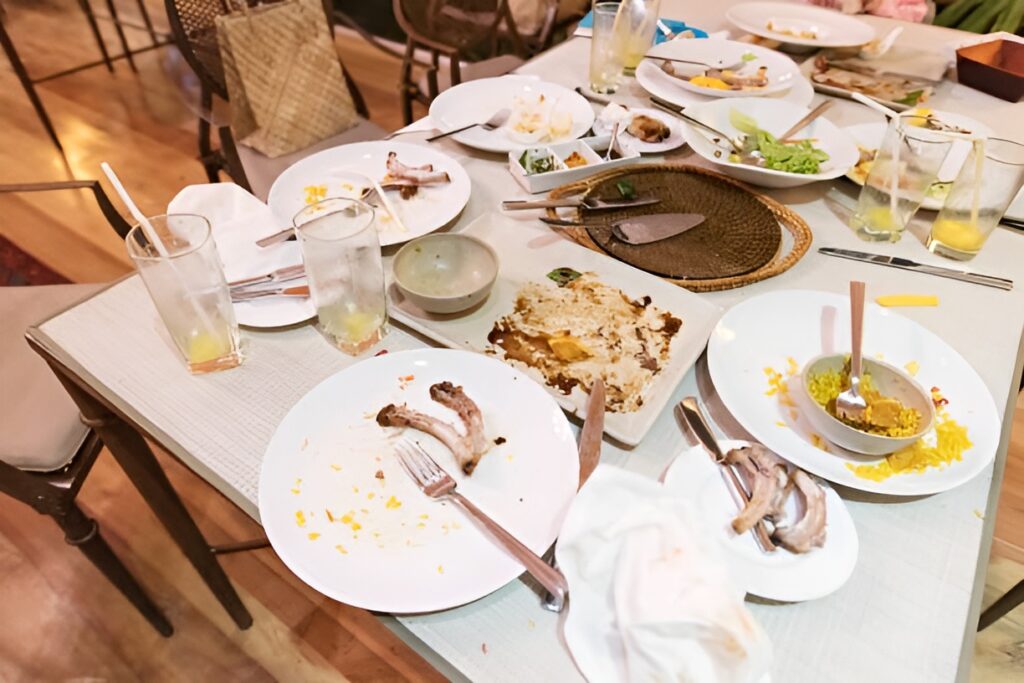
Yes, it’s a server’s job to clean the table—but not to mop up like it’s a toddler’s birthday party. When napkins are shredded, drinks are spilled, and food is smeared everywhere, it shows zero consideration. This goes double if you have children and leave behind a high chair war zone. Cleaning up a bit before you leave is courteous and appreciated. Servers remember the people who made their shift harder. You don’t have to scrub the table—just don’t treat it like a trash can. Common courtesy goes a long way.
Monopolizing the Server’s Time

It’s great to be friendly, but some diners treat servers like their new best friend—or therapist. Holding them hostage with stories or endless questions slows service for everyone else. Servers are trained to engage, but they also have five other tables to take care of. Constantly calling them over or chit-chatting when they’re clearly busy isn’t cute—it’s inconsiderate. This habit creates bottlenecks during busy shifts. Want a long talk with someone? Invite a friend, not the waitstaff. Respecting their time shows you’re a thoughtful diner.
Ignoring the Reservation Policy
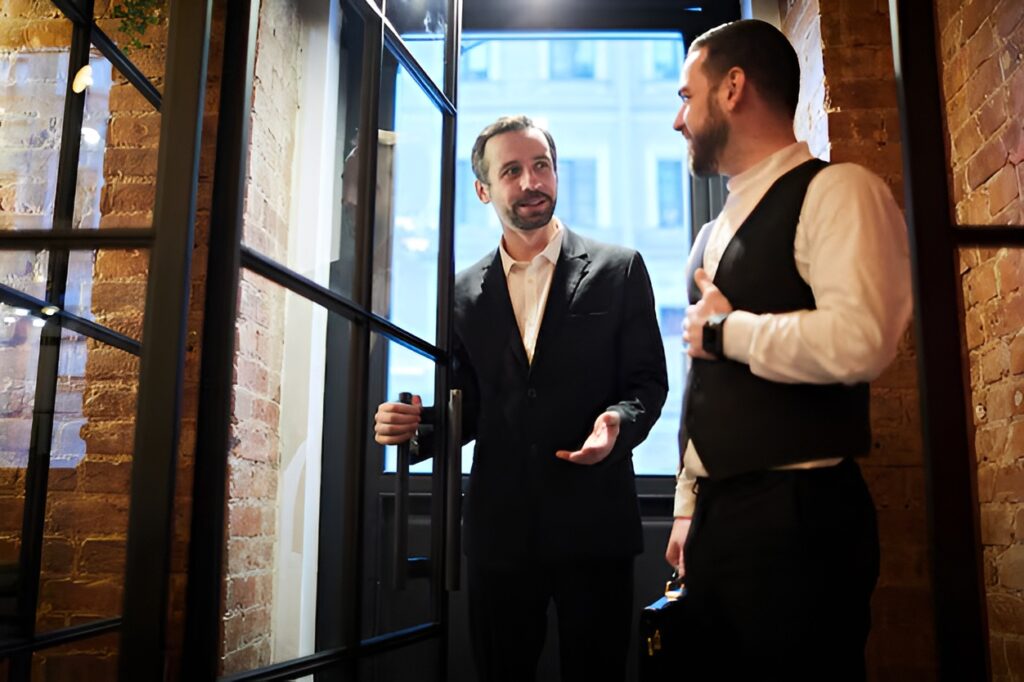
Some people assume rules don’t apply to them—especially when it comes to reservations. Showing up late or demanding a table without one causes unnecessary stress for the host. It often results in complaints about wait times that could’ve been avoided. Policies exist for a reason: fairness, efficiency, and flow. Expecting special treatment just makes you seem entitled. Be punctual, or call ahead if you’re delayed. Otherwise, don’t be surprised when you’re waiting longer than you think you “deserve.”
Refusing to Tip (or Tipping Badly)
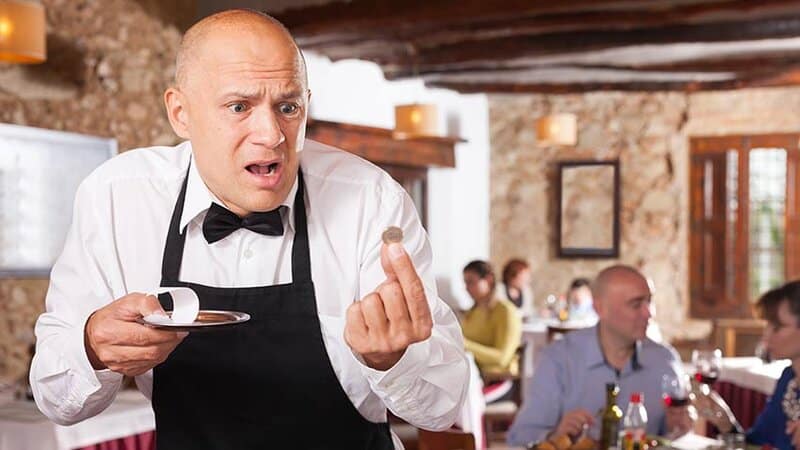
Tipping isn’t just a bonus—it’s part of how servers earn their living, especially in the U.S. Leaving a poor tip after good service is a slap in the face. And skipping it altogether makes you that person everyone dreads. Some diners try to justify this with “I’m European” or “It’s not my job to pay their wages.” But in countries where tipping is customary, this excuse doesn’t fly. Unless service was truly bad, 18-20% is the standard. Anything less makes you look stingy and clueless.
Taking Forever to Order
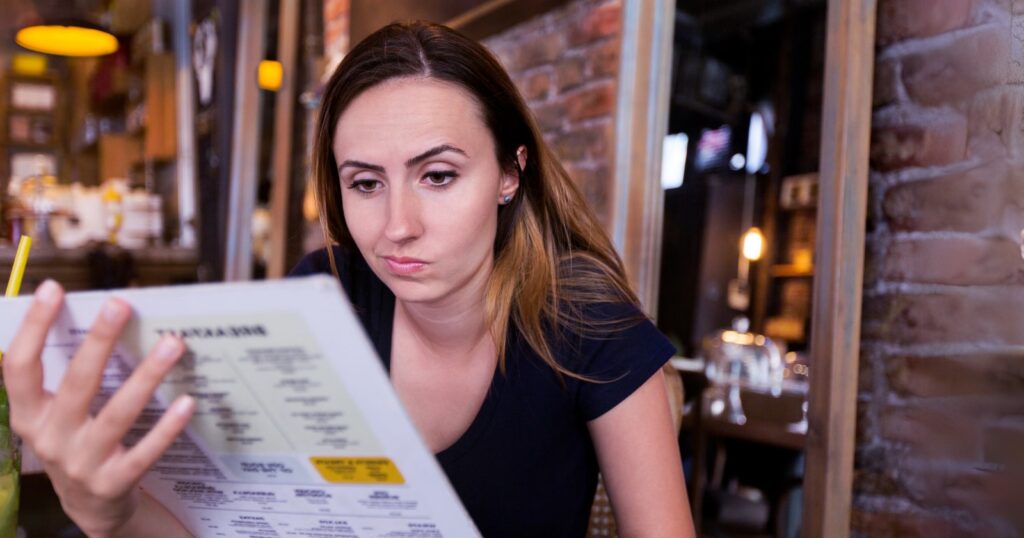
Some people treat the menu like it’s a novel, needing 20 minutes just to pick a sandwich. While it’s okay to have questions, dragging out the decision holds up the flow. It’s especially rude when the server comes back multiple times and you still haven’t decided. In busy restaurants, every delay impacts the entire dining room. It’s fine to take your time at home—not when a server’s trying to turn tables. Scan the menu online ahead of time if you’re indecisive. Quick decisions make everyone’s night smoother.
Letting Kids Run Wild
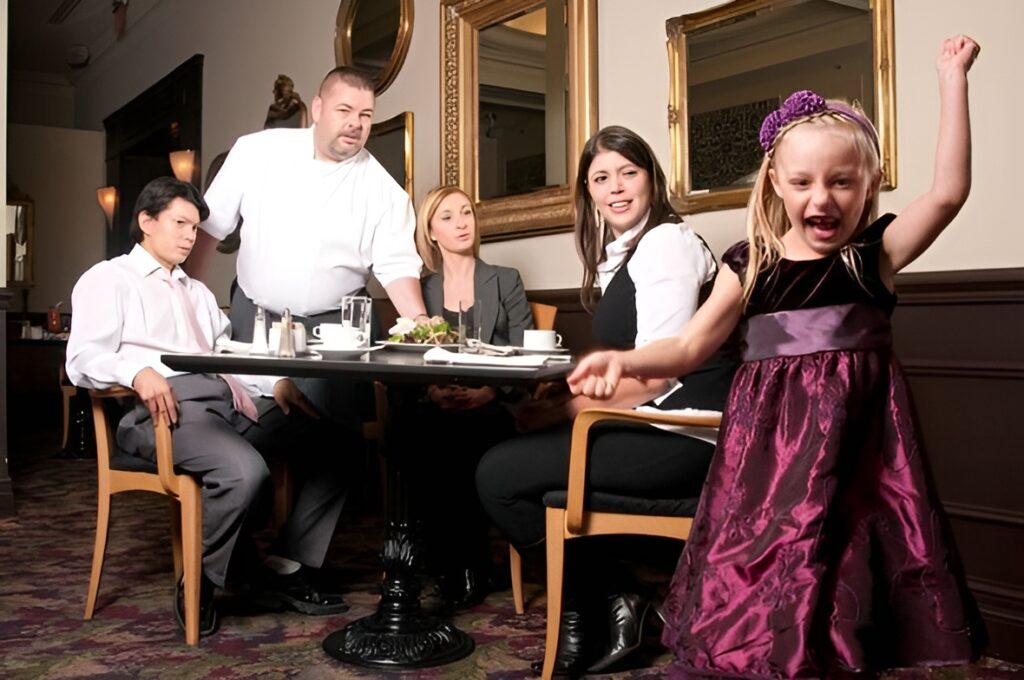
Bringing children to restaurants is totally fine—until they turn into mini chaos agents. When kids are allowed to run between tables or climb on booths, it’s dangerous and disruptive. It puts servers at risk of tripping and makes other diners uncomfortable. Managing your child’s behavior is part of dining out as a family. Other patrons didn’t come to a playground. No one expects silence, but basic supervision is respectful. Unchecked kid chaos makes the whole table that table.
Arguing Over the Bill
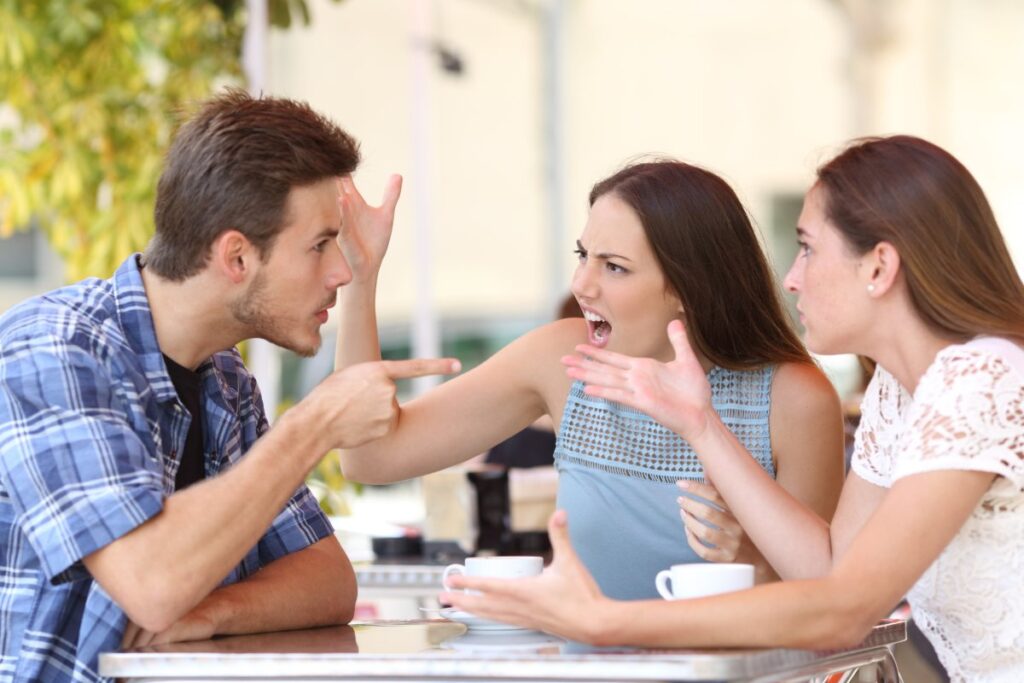
Few things kill the vibe faster than a loud debate over who owes what. Whether you’re fighting about splitting evenly or contesting a $2 charge, making a scene at the end of the meal is tacky. It holds up the server, disrupts nearby tables, and leaves everyone with a sour taste. If you’re dining out with others, discuss payment logistics ahead of time. Better yet, use a bill-splitting app or just take turns treating each other. Quibbling at the table isn’t worth the drama. Remember, you’re not at a flea market—you’re at a restaurant.
Overreacting to a Small Mistake

Mistakes happen—wrong side, forgotten drink, slightly overcooked steak. But some diners turn every hiccup into a courtroom drama. Yelling, eye-rolling, or demanding to speak to the manager over minor issues makes everyone cringe. Most errors can be fixed quickly and politely if you’re respectful. Making a big scene rarely results in better service—in fact, it often backfires. A little patience and kindness go a long way. Don’t let a minor inconvenience turn you into that customer.
Oversharing Personal Drama

Restaurants are not therapy offices, yet some people seem determined to air every personal crisis over dinner. Loudly discussing breakups, medical issues, or office gossip makes surrounding diners deeply uncomfortable. It’s awkward, intrusive, and turns a public place into your personal soap opera. There’s a time and place for venting—but maybe not next to a couple enjoying their anniversary. If your story would make a stranger wince, maybe save it for the car ride home. Keep the dinner conversation digestible, not dramatic.
Trying to Flirt with the Server

Servers are friendly because it’s their job—not because they’re into you. Flirting, making suggestive comments, or invading their personal space is not only inappropriate—it’s wildly uncomfortable. It puts the server in a position where they have to smile through disrespect to avoid losing a tip. This kind of behavior crosses a line into harassment, even if it’s meant to be “harmless fun.” Treat service staff with the same respect you’d give a coworker or colleague. Don’t mistake good customer service for a romantic invitation.
Bringing Outside Food
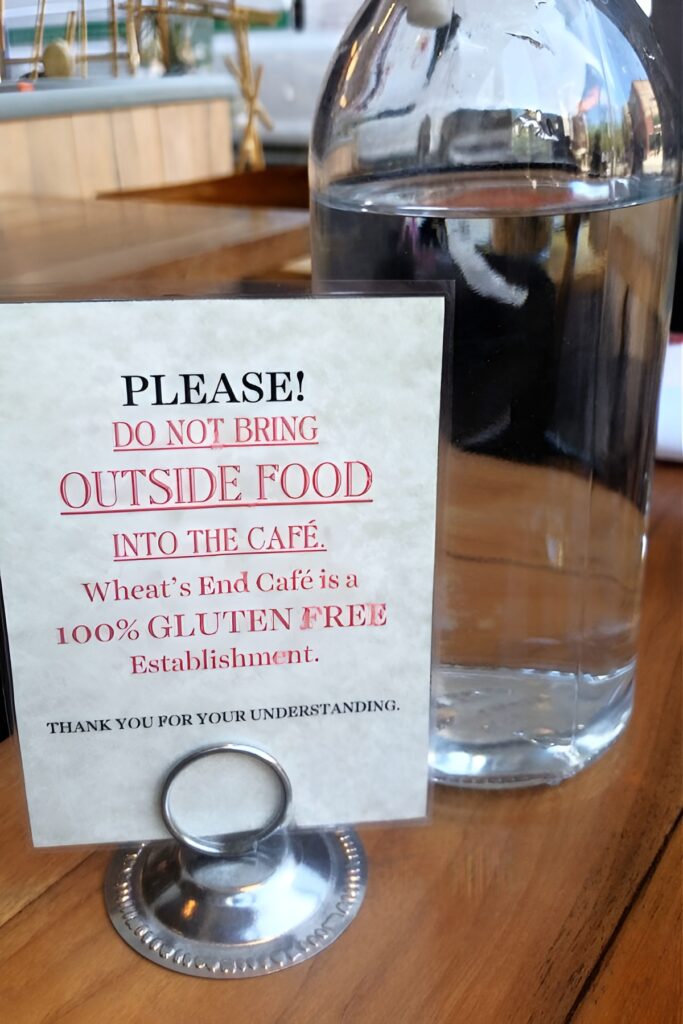
Unless it’s baby food or something medically necessary, bringing outside food into a restaurant is a major faux pas. It’s disrespectful to the establishment, the chef, and other patrons. This habit screams, “I don’t trust your menu,” and creates awkward situations for the staff. It also violates health codes in many places. If you have dietary restrictions, call ahead or choose a restaurant that caters to them. Don’t turn your table into a picnic zone—it’s not a food court.
Overdoing It With Photos
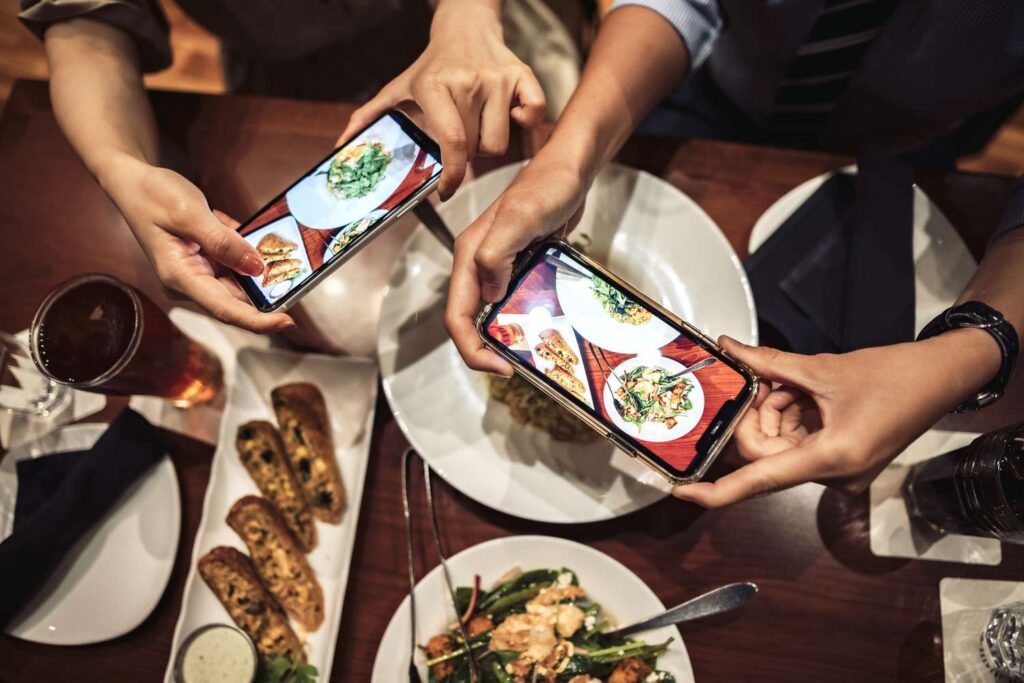
Snapping a quick pic of your meal? Fine. Holding a full-on photo shoot with flash, filters, and angles from every direction? Cringe. When your meal gets cold because you’re staging content, you’ve crossed a line. It slows down dining, annoys other guests, and takes the focus off actually enjoying the experience. Some restaurants even ban photography for this very reason. Enjoy your meal with your mouth, not your camera roll. Remember, you’re there to eat, not to curate a feed.
Hogging the Table After Paying
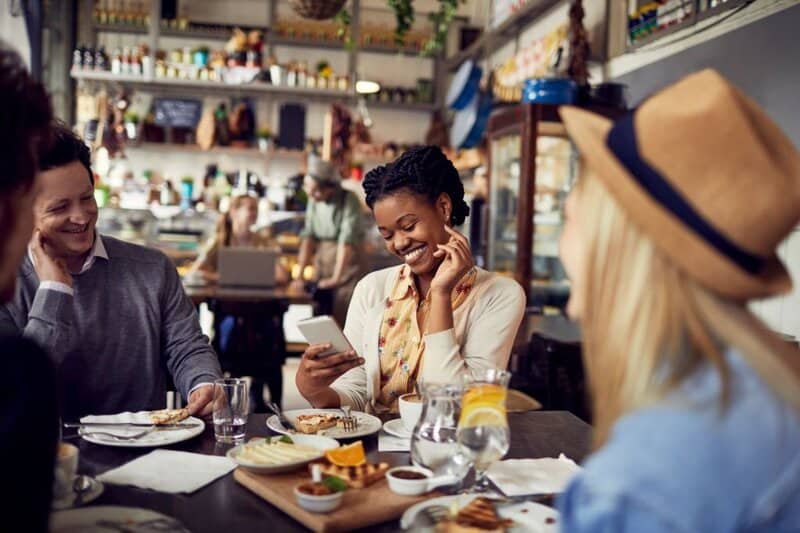
It’s tempting to linger over conversation after the meal ends, but when you stay way past your welcome, it affects the restaurant’s ability to seat others. Especially during peak hours, holding a table for an extra hour can cost the restaurant business. It also frustrates staff who may be waiting to clean up or close out their shift. If you want to keep talking, consider moving to the bar or taking a walk. Occupying prime real estate with no intention of ordering more is just inconsiderate. Don’t become the table that overstays its welcome.
Complaining About Prices After Ordering
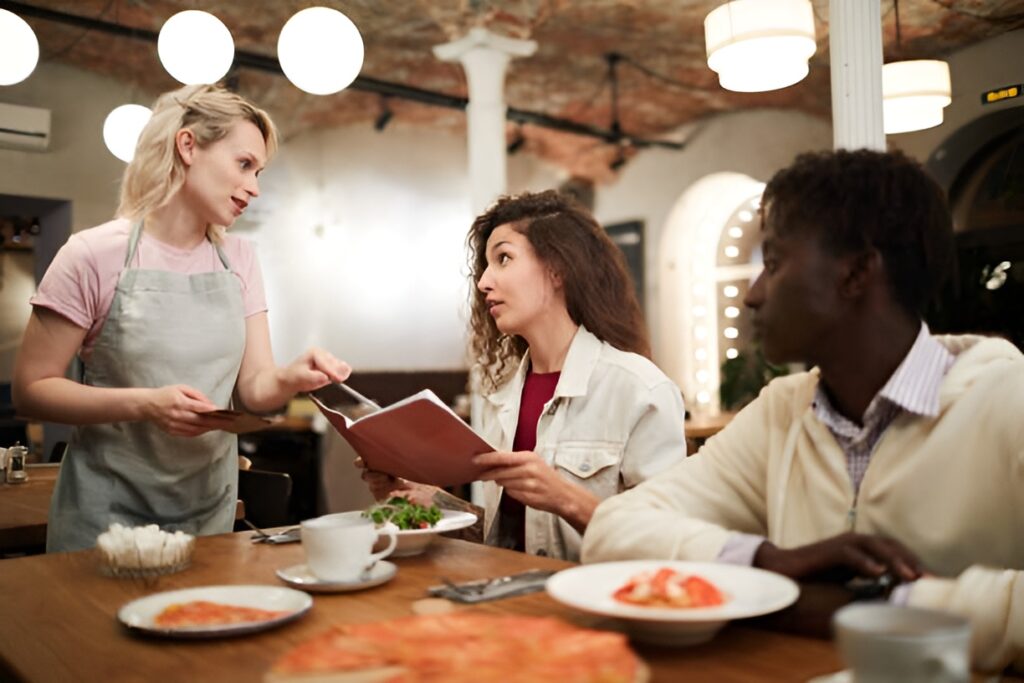
Some people act shocked at the bill, despite everything being clearly listed on the menu. Complaining after the fact makes you look cheap and unprepared. If something was too expensive, why order it in the first place? It’s fine to ask about prices or portion sizes beforehand, but once you’ve committed, don’t whine. It puts the server in an uncomfortable position they can’t fix. Be a smart diner—read before you eat. Dining out is a choice, not a trap.
Treating Solo Diners Like Oddities

Some people look at solo diners as if they’ve wandered into the wrong place. Commenting on, pitying, or mocking someone eating alone is deeply uncool. People dine solo for many reasons—travel, relaxation, self-care—and none require explanation. Restaurants are not just social clubs; they’re places to enjoy food, alone or with others. Making someone feel awkward for dining solo says more about you than them. Let people eat in peace. Not every table needs two chairs to be valid.
Assuming the Restaurant Can Read Your Mind

If you have allergies, preferences, or expectations, you have to speak up—politely. Expecting the staff to know that you hate cilantro or that you’re gluten-free without saying anything is unfair. Passive-aggressive comments like “Well, I just assumed…” don’t help anyone. Communicate clearly and kindly upfront to avoid issues. You’ll be more likely to get what you want, and the staff can do their jobs properly. No one’s psychic—not even your server.
Acting Like You’re Above the Rules
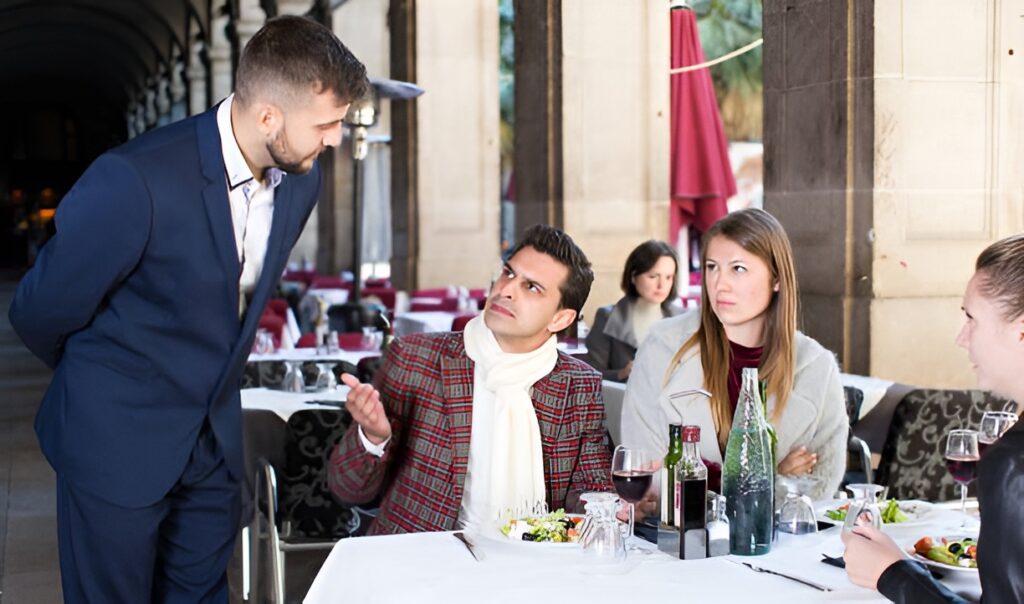
Some diners treat policies—like mask mandates, service hours, or no-substitution menus—as optional. Arguing with the host or refusing to follow house rules disrupts operations and disrespects staff. These policies exist for a reason, and everyone else follows them just fine. If you don’t like them, dine elsewhere. You’re not a special case just because you’re “a regular” or “know the owner.” Being cooperative shows maturity. Acting like the exception just makes you look entitled.
Playing Music or Videos Without Headphones
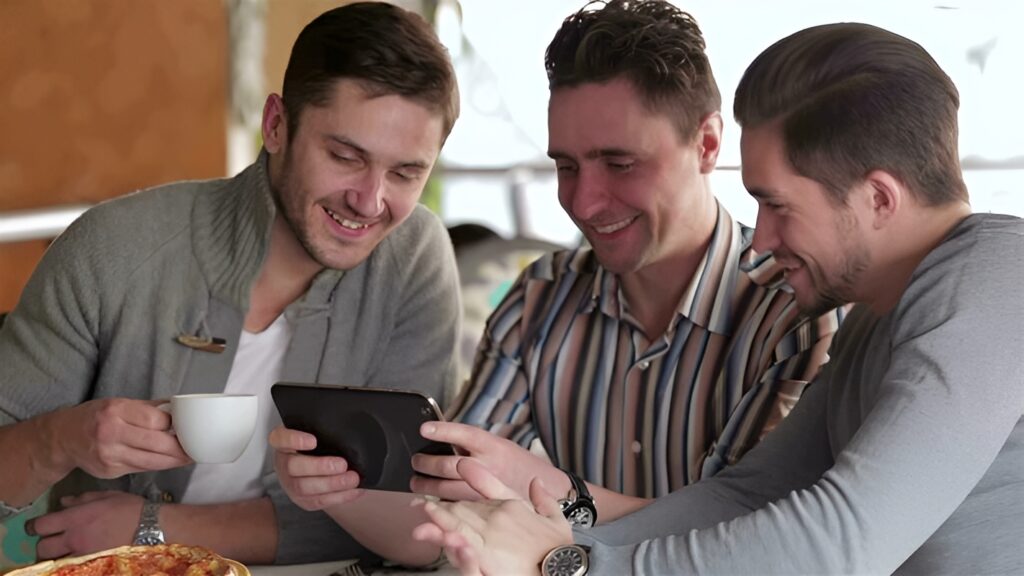
Watching TikToks, playing games, or letting your kids use an iPad at full volume in a restaurant is a fast way to get side-eyed by everyone. It’s loud, disruptive, and completely avoidable with headphones. Other diners didn’t come to hear your phone—no matter how cute the video is. Restaurants strive to create an ambiance, and random noises ruin it. Even if you don’t mind, everyone else does. Keep it private or wait until later.
Criticizing the Food Loudly
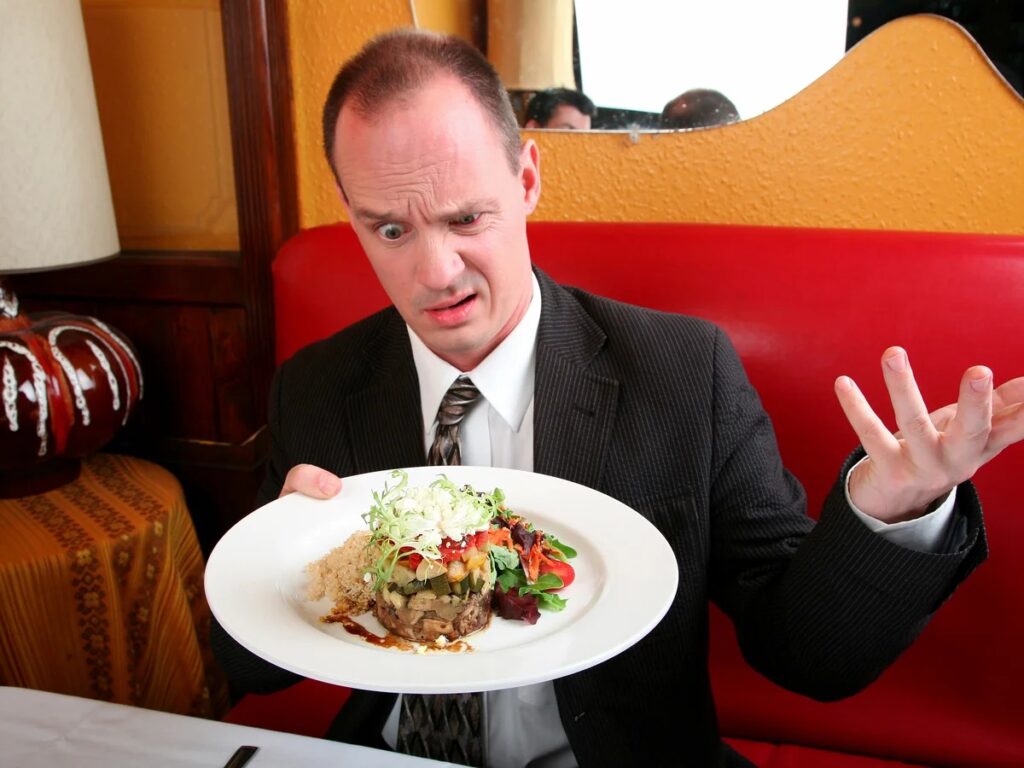
Giving negative feedback is fine, but loudly complaining about every bite makes everyone around you uncomfortable. Declaring a dish “inedible” or ranting about how your grandma made it better isn’t helpful. If there’s a real issue, quietly and respectfully let the server know. Public food shaming doesn’t make you look like a connoisseur—it makes you look rude. Not every meal has to be perfect, but every diner should aim to be polite. You’re there to enjoy yourself, not host a one-person culinary critique.
Acting Like You Own the Place
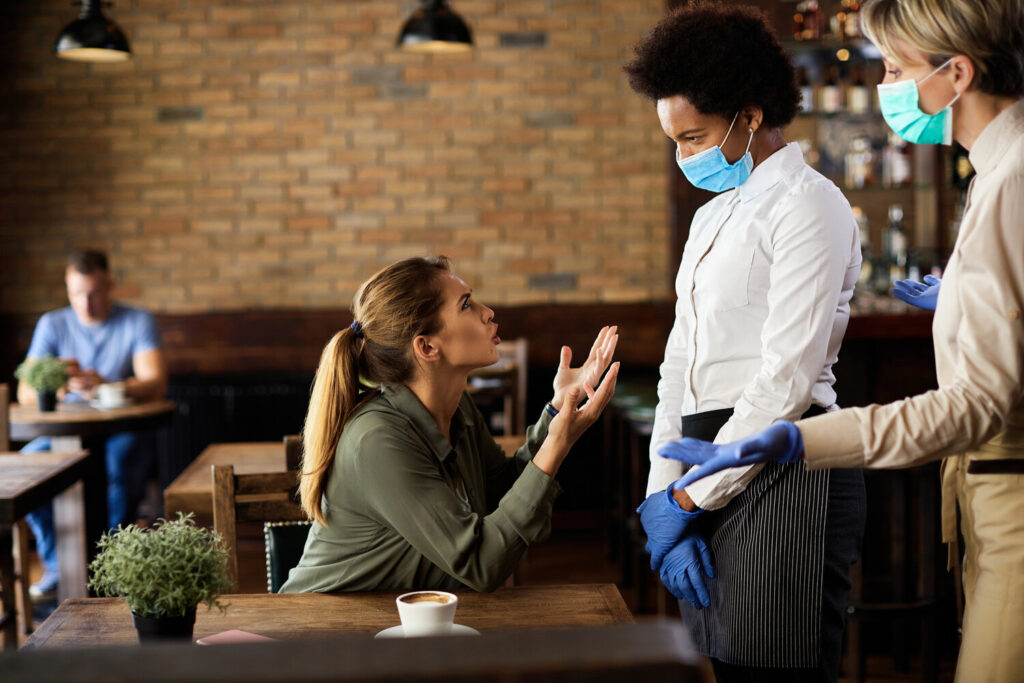
Walking in like you’re royalty, demanding special treatment, or ordering people around is a guaranteed way to be labeled that guest. Whether you’re a regular or it’s your first time, basic humility goes a long way. Servers are not your employees, and the host stand isn’t your throne. Kindness and patience will get you much further than bossy energy. Restaurants are a shared space—don’t dominate the vibe. You’re a guest, not the main character.
Leaving a Bad Review After Saying Everything Was “Great”
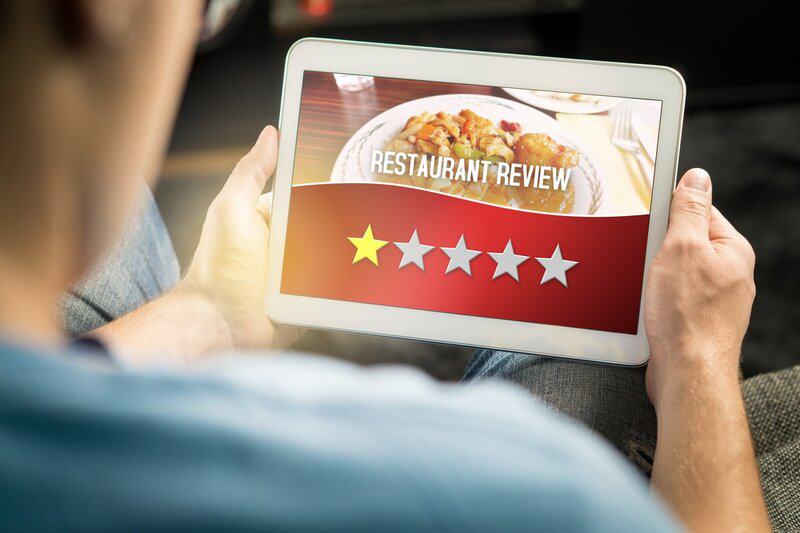
Some diners smile, nod, and say “Everything’s perfect!”—then leave a scathing review online. This passive-aggressive move is unfair and unhelpful. Restaurants would rather fix an issue in real-time than find out through Yelp two days later. If you had a problem, say something politely while you’re there. Honest communication helps them improve and gives them a chance to make it right. Otherwise, you’re just performing for the internet. Don’t fake nice and then go full keyboard warrior later.

